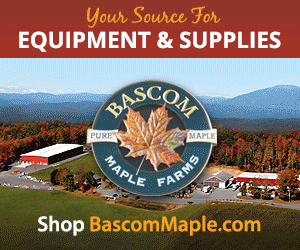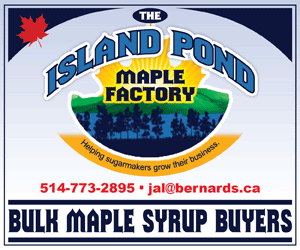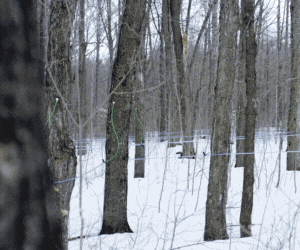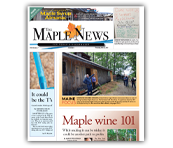BACK TO HOME
UVM Proctor Page
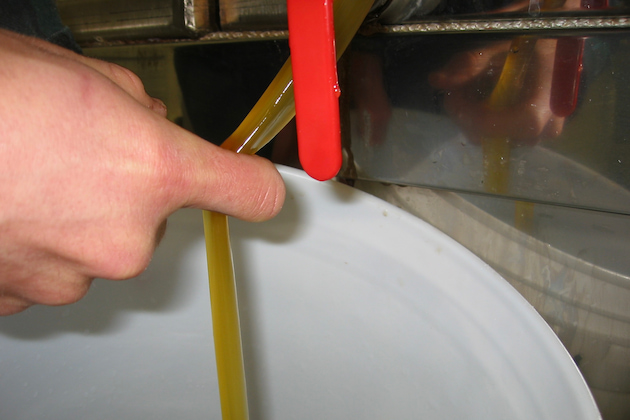
Ewwww. Bent syrup
Peter Gregg | January 25, 2023
MORRISVILLE, Vt.—Ewww, bent syrup.
Producers are being advised to keep an eye on quality as a new maple season gets underway.
One of the things to watch out for are changes in the sap at the end of the season, or whenever warm temperatures strikes, which can cause nasty effects.
UVM Extension Maple Specialist Mark Isselhardt says the ropey syrup phenomena, sometimes so thick that you can bend it with your finger, is caused by a bacteria that produce exopolysaccharides (EPS). [ MORE ]
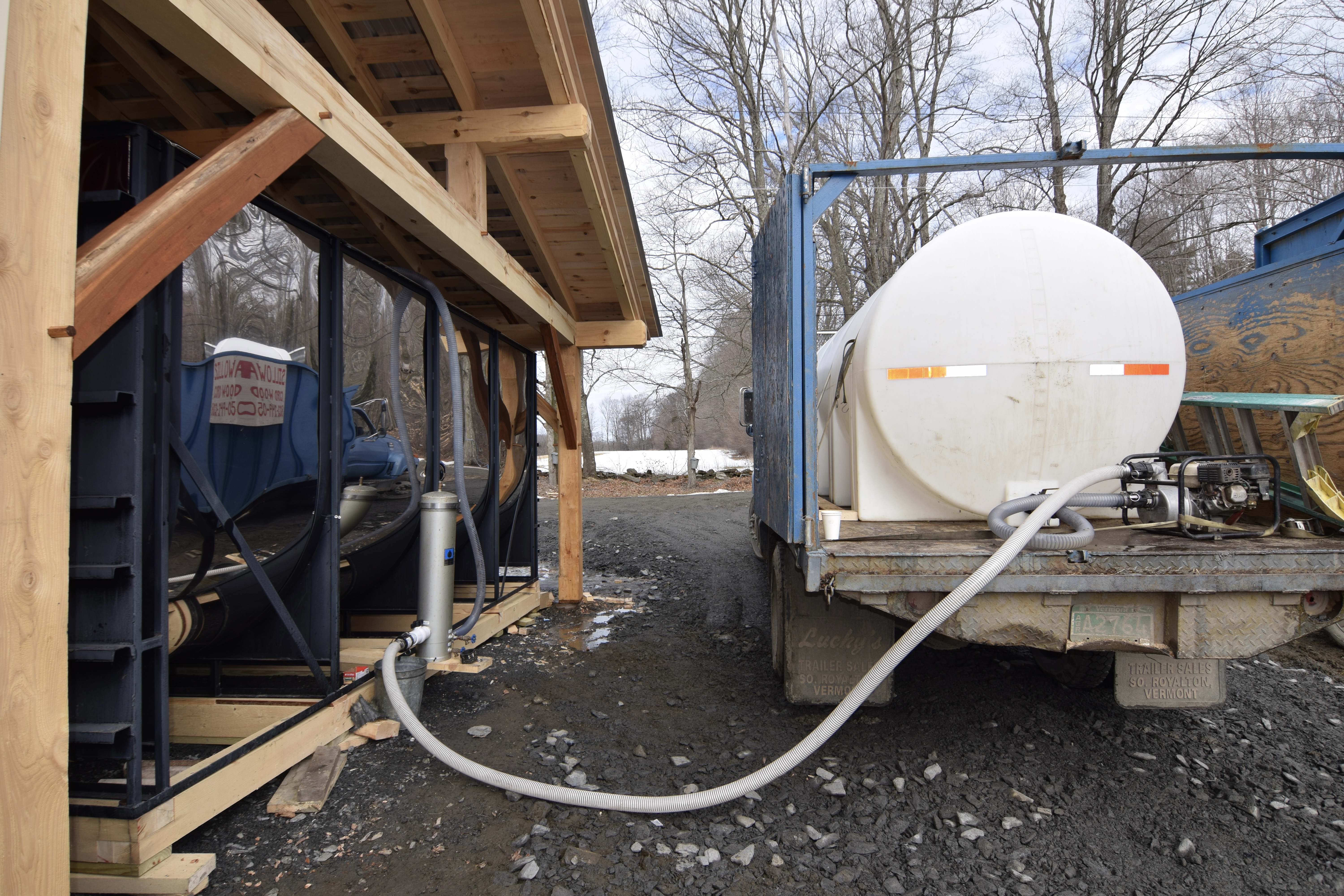
UVM offers a new contract template for sap sellers
Mark Cannella, University of Vermont Extension | October 5, 2022
MORRISVILLE, Vt.—What could be worse than a ten-page legal contract?
Perhaps an eighteen-page legal agreement is a “non-starter” and you would rather bear the risk if something goes wrong.
Educators at UVM were hesitant to publish a long version for the new Sap Non-Exclusive Supply Agreement knowing that the common practice is a handshake agreement.
The challenge we faced from legal professionals and maple producers we consulted with was that there so many different considerations that could not be ignored.
The result is a robust and inclusive educational document/legal agreement template that enables a sap supplier and sap buyer to negotiate and agree to important terms guiding the arrangement.
The Maple Sap Non Exclusive Supply Agreement and an Additional Clauses Supplement factsheet are available online in the Resource Library at www.maplemanager.org [ MORE ]
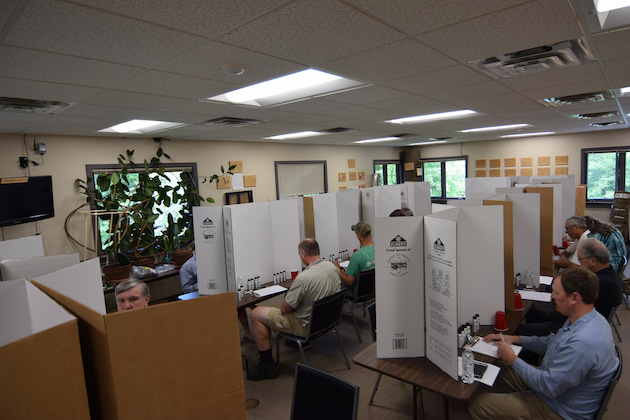
Syrup tasters sought for UVM experiment
Peter Gregg | July 6, 2022
UNDERHILL CENTER, Vt.—The UVM Proctor Maple Research Center is seeking participants July 19-20 for a maple syrup flavor experiment.
The experiment will involve tasting several samples of pure maple syrup and assessing their flavor.
To participate as a panelist, you must:
— Have experience tasting and evaluating the flavor of maple syrup (or have completed the IMSI Grading School or other syrup flavor training)
— Be at least 18 years old
— Be a healthy, nonsmoker [ MORE ]
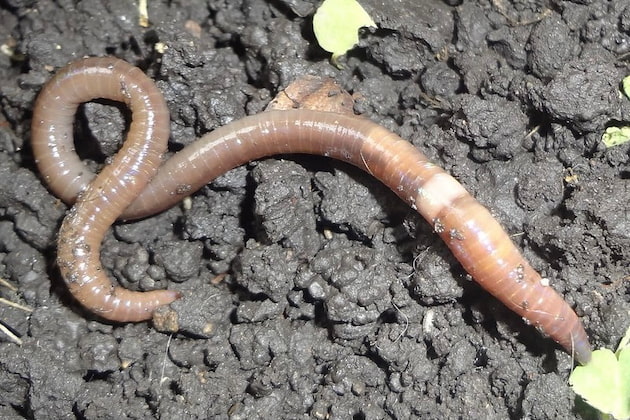
Got jumping worms?
Peter Gregg | December 8, 2021
MONTPELIER, Vt.—Got jumping worms?
Vermont sugarmakers are being asked to participate in a survey to find out if jumping worms have been found in the sugarbush.
This short survey will determine how widely distributed the jumping worms are in Vermont.
https://forms.office.com/Pages/ResponsePage.aspx?id=O5O0IK26PEOcAnDtzHVZxsFmcMWPh6dMjZ68WQU-7N5UNjhXM09MR1RKVFVOSkQ0UDlIWlhTVjQ1TC4u
The Vermont Agency of Agriculture, Food and Markets and the VT Urban and Community Forestry program are interested in finding out more about the distribution of jumping worms, Amynthas sp., in Vermont.
[ MORE ]
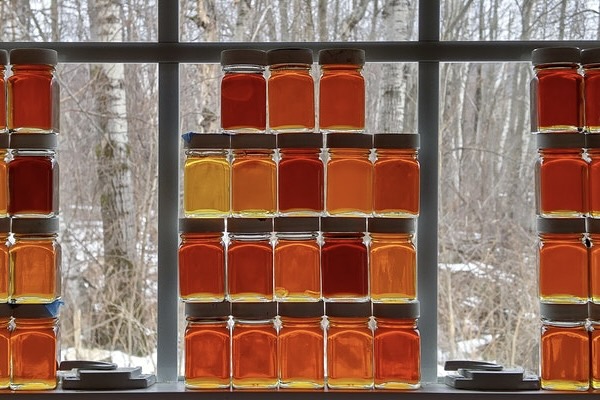
Maple University! Vermont maple school online this week
Peter Gregg | December 7, 2021
RANDOLPH, Vt.—Call it Maple University.
Sugarmakers everywhere are invited to Vermont’s three-day maple school this week, starting Wednesday.
“We'll be offering three days of engaging sessions,” organizers said.
Registration is free. Click on: https://www.eventbrite.com/e/2021-vermont-maple-conference-week-tickets-221510141797
Sugarmakers in need of assistance with registering online call Cory (802-786-9437) or Allison (802-777-2667).
All conference sessions qualify for Continuing Forestry Education credits.
[ MORE ]

Sap flow, wounding and compartmentalization in maple
Timothy D. Perkins, Abby K. van den Berg, and Mark L. Isselhardt | June 23, 2021
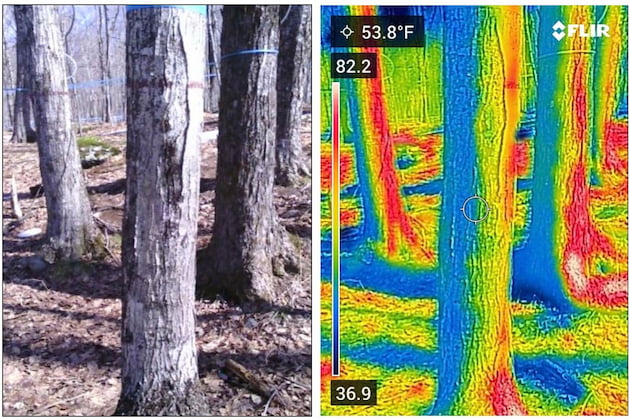
Why the sap may not always flow well in the early season
Timothy D. Perkins, Abby van den Berg, Brendan Haynes | May 7, 2021
UNDERHILL CTR., Vt.—Maple producers know that when the temperature starts to rise in the spring, sap flows can’t be far behind.
But when the weather starts to warm early in the spring and temperatures seem favorable for good sap flows, they are sometimes left wondering why the sap hasn’t started to run.
There are several explanations for the disconnect between warm air temperature and a lack of flow during the early season.
First, trees are big and can have a large amount of thermal inertia (resistance to change).
By that we mean that tree temperature is buffered and will not always respond quickly to changes in air temperature.
Whereas air temperature can rise quickly during the day, it takes a while for the large mass of wood to warm up, particularly if it has been very cold prior to a warm period. [ MORE ]
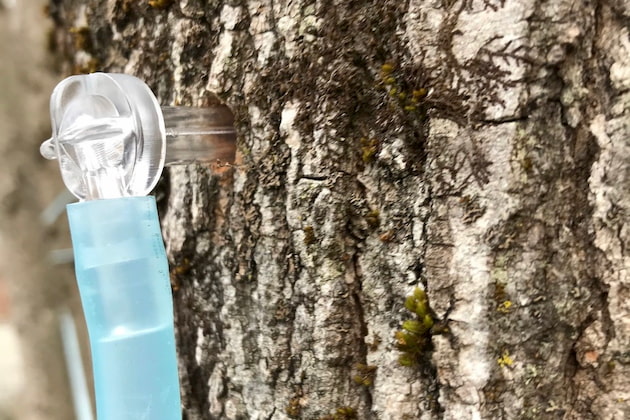
Getting it right. Tapping tips for higher sap yield
Dr. Tim Perkins & Dr. Abby van den Berg | January 21, 2021
UNDERHILL CENTER, Vt.—Tapping. It isn’t as easy as simply drilling a hole in a tree.
Getting a good taphole in a good location is critical to achieve high yields.
Start with a sharp bit designed specifically for maple tapping, and sharpen or replace it after drilling about 2,500 holes.
[ MORE ]





















